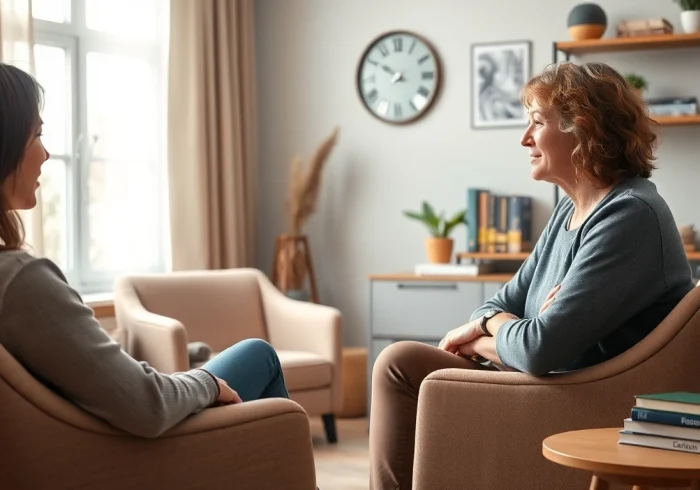What is Attachment Theory?
Attachment Theory is a psychological model that describes the dynamics of long-term interpersonal relationships, particularly between individuals and their caregivers. Developed by psychologists such as John Bowlby and Mary Ainsworth, this theory emphasizes the importance of emotional bonds formed during early childhood and how these early experiences shape relationships across a lifespan.
Introduction to Attachment Styles
Attachment styles are categorized into four primary types: secure, anxious, avoidant, and disorganized. Secure attachment occurs when caregivers are responsive and nurturing, fostering a sense of safety in children. Anxious attachment develops when caregivers are inconsistently available, leading children to become overly dependent on relationships. Avoidant attachment is characterized by emotional distance, often due to caregivers who reject or dismiss their needs. Lastly, disorganized attachment is marked by a lack of coherent attachment behavior and is often a result of trauma.
Importance of Attachment in Relationships
Attachment theory underscores that early bonding experiences shape the template for future relationships, influencing a person’s ability to form healthy connections with others. Understanding these attachment styles can help individuals navigate their interpersonal relationships and recognize their own behavior patterns, potential conflicts, and emotional responses. Secure attachments can lead to stronger, healthier relationships, while insecure attachments can create challenges such as fear of intimacy, rejection, or dependence.
Effects of Early Experiences
Early experiences significantly influence emotional development. Children who experience nurturing and consistent responses from caregivers tend to develop secure attachment styles, promoting resilience in relationships. Conversely, those who face emotional neglect or inconsistency may struggle with trust, communication, and emotional intimacy later in life. This aspect of attachment theory serves as a poignant reminder of the profound impact that early emotional experiences can have on adult behavior and relationship dynamics.
Role of an Attachment Theory Specialist
An attachment theory specialist plays a vital role in supporting individuals and families seeking to understand and heal attachment-related issues. These professionals utilize their expertise in attachment theory to guide patients through the complexities of their relationships, aiming to foster healthier emotional connections.
Training and Qualifications
To become an attachment theory specialist, professionals typically undergo extensive training in psychology, social work, or counseling. Many pursue additional certifications in specific therapeutic modalities based on attachment theory, such as Emotionally Focused Therapy (EFT) or attachment-based family therapy. This specialized training equips them with the knowledge to assess attachment styles, facilitate therapy sessions, and provide tailored interventions for clients struggling with relationship issues.
Methods Used in Therapy
Attachment theory specialists employ various therapeutic methods tailored to individual needs. Techniques may include guided imagery, role-playing, and mindfulness practices that focus on emotional awareness and regulation. Many practitioners also emphasize the importance of creating a secure therapeutic alliance, as this relationship can serve as a model for healthy attachments in other areas of a client’s life.
Benefits of Consulting a Specialist
Working with an attachment theory specialist can provide numerous benefits. Clients often discover insights into their own attachment styles and how these affect their relationships. Therapy can help break negative cycles, reduce anxiety related to both anxious or avoidant behaviors, and facilitate personal growth. Additionally, specialists can guide individuals and couples in rebuilding trust, developing effective communication skills, and fostering emotional connection.
Common Attachment Issues Addressed
Attachment theory specialists frequently address a variety of issues stemming from attachment dynamics. Understanding these issues can empower individuals to work through conflicts and enhance their relationships.
Anxiety and Avoidant Attachment
Anxiety and avoidant attachment styles are common issues that specialists address. Individuals with an anxious attachment style often struggle with trust, fear of abandonment, or heightened sensitivity to relationship dynamics. Conversely, those with avoidant attachment may distance themselves emotionally, leading to superficial connections. Both styles require tailored therapeutic approaches to facilitate growth and healing.
Attachment Trauma and Recovery
Attachment trauma can stem from negative early experiences, such as neglect, abuse, or loss. This trauma can have lasting effects on an individual’s mental health and relational patterns. Specialists employ strategies to help clients process trauma, work towards emotional regulation, and develop healthier coping mechanisms. Recovery from attachment trauma often involves rebuilding a sense of safety in relationships and learning to trust others.
Building Healthy Relationships
Specialists focus on helping individuals build healthy relationships by fostering secure attachment behaviors. This process can involve teaching clients effective communication skills, understanding boundaries, and developing empathy. By highlighting the importance of mutual respect and support in relationships, specialists assist clients in creating connections based on trust and emotional intimacy.
How to Find the Right Attachment Theory Specialist
Finding the right attachment theory specialist can be a crucial step toward personal healing and growth. Consider the following points when seeking a professional.
Questions to Ask Potential Therapists
When evaluating potential specialists, prepare a list of questions to clarify their approaches and compatibility with your needs. Inquire about their experience with attachment theory, specific methods they utilize in therapy, and how they handle issues similar to yours. Asking about their therapeutic philosophy can also give insight into whether their approach aligns with your expectations.
Verifying Credentials and Experience
Ensuring that a specialist has the appropriate credentials and experience is essential. Look for therapists who hold licenses in psychology, counseling, or social work and have additional training in attachment-based therapy methods. Checking their past experiences, areas of focus, and client testimonials can provide valuable insights into their effectiveness as a therapist.
Assessing Compatibility and Comfort
Therapeutic success largely depends on the comfort and rapport between the client and therapist. During initial consultations, assess how comfortable you feel discussing personal issues with the therapist. Evaluating the therapist’s empathy, responsiveness, and overall demeanor can help gauge whether they will be a good fit for your therapeutic journey.
Future of Attachment-Based Therapy
As society continues to better understand the complexities of human relationships, the future of attachment-based therapy looks promising, with innovations on the horizon that enhance its application.
New Developments in Research
Emerging research is continually shaping the field of attachment theory. Recent studies have explored the neurobiological aspects of attachment, emphasizing how early relationships influence brain development and emotional regulation. This new understanding reinforces the importance of early interventions and provides evidence-based strategies for therapists to implement in practice.
Integrative Approaches with Other Therapies
An integrative approach that combines attachment-based therapy with other modalities, such as cognitive behavioral therapy (CBT), mindfulness-based therapies, or family systems therapy, is gaining traction. This approach can yield comprehensive treatment plans that address a range of mental health and relational issues while drawing from the strengths of each therapeutic model.
Success Stories and Case Studies
Documented success stories and case studies from attachment-based therapy highlight the profound impact of understanding and healing attachment-related issues. These narratives often showcase journeys of transformation, illustrating how individuals and couples can thrive by cultivating secure attachments and more profound emotional connections with others.



